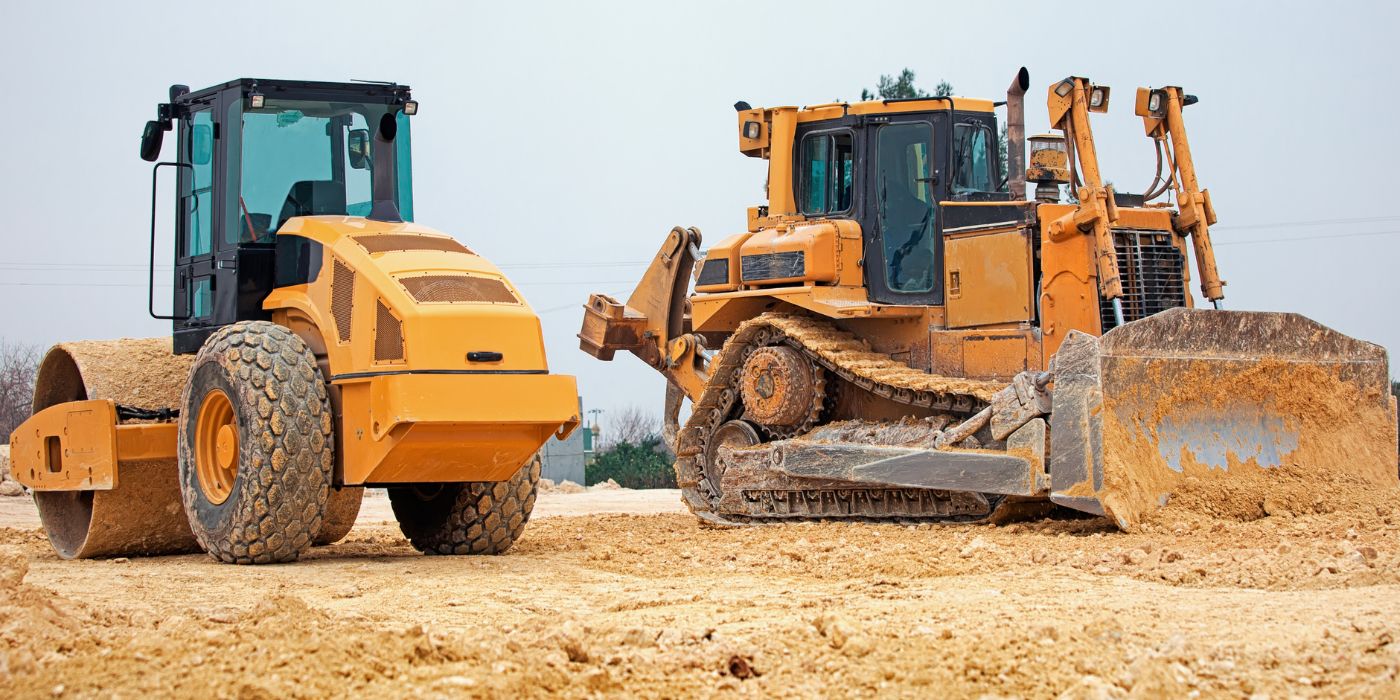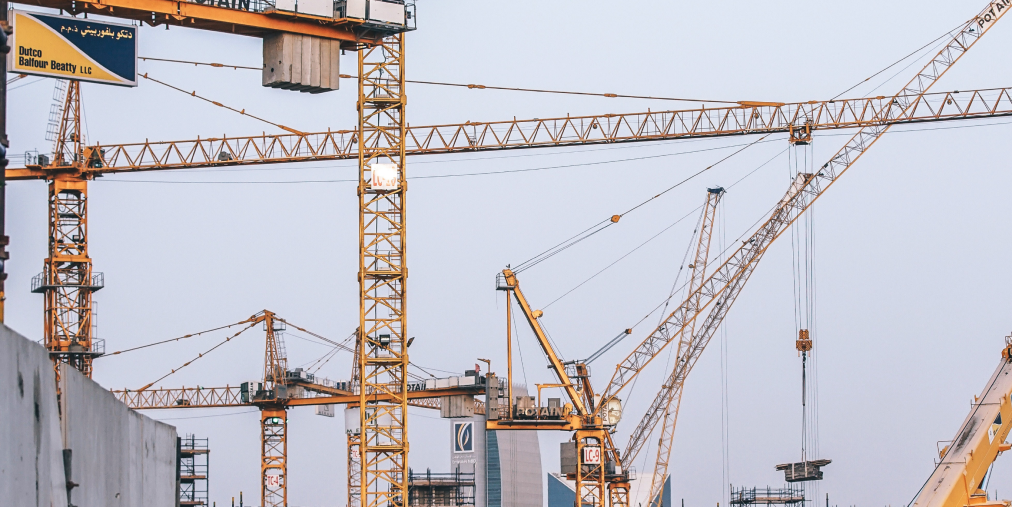Construction Equipment Rentals in Tuscaloosa, AL: Every Little Thing You Need for Your Job Site
Construction Equipment Rentals in Tuscaloosa, AL: Every Little Thing You Need for Your Job Site
Blog Article
Discovering the Financial Benefits of Leasing Building And Construction Devices Compared to Owning It Long-Term
The choice in between owning and renting construction tools is pivotal for monetary monitoring in the sector. Renting deals instant price savings and operational flexibility, permitting companies to assign sources extra effectively. In comparison, possession comes with substantial long-term financial dedications, consisting of maintenance and depreciation. As contractors weigh these choices, the effect on capital, task timelines, and modern technology gain access to comes to be progressively significant. Understanding these nuances is important, particularly when considering just how they align with specific task demands and economic approaches. What aspects should be prioritized to guarantee optimal decision-making in this facility landscape?

Cost Comparison: Renting Out Vs. Owning
When assessing the economic ramifications of having versus renting building devices, a comprehensive cost contrast is vital for making informed choices. The option between having and leasing can dramatically affect a firm's profits, and understanding the associated expenses is critical.
Renting out building devices commonly includes lower ahead of time prices, enabling businesses to assign capital to various other operational requirements. Rental agreements usually consist of flexible terms, enabling companies to access progressed machinery without lasting commitments. This versatility can be especially helpful for short-term tasks or changing work. However, rental prices can accumulate gradually, potentially exceeding the cost of ownership if tools is needed for a prolonged duration.
On the other hand, owning building and construction devices needs a considerable preliminary financial investment, along with continuous expenses such as insurance policy, devaluation, and funding. While possession can lead to long-lasting savings, it also binds funding and might not provide the exact same degree of versatility as renting. Additionally, owning tools demands a commitment to its utilization, which may not always line up with project needs.
Inevitably, the decision to rent out or have should be based upon an extensive analysis of certain task requirements, monetary ability, and lasting critical objectives.

Upkeep Responsibilities and expenses
The choice in between renting out and owning building and construction tools not just includes financial factors to consider but likewise encompasses ongoing maintenance expenditures and duties. Having equipment needs a considerable dedication to its maintenance, which includes routine examinations, repair work, and prospective upgrades. These responsibilities can quickly gather, leading to unexpected costs that can stress a spending plan.
In comparison, when renting devices, maintenance is normally the duty of the rental business. This plan allows service providers to avoid the monetary worry connected with wear and tear, as well as the logistical obstacles of organizing fixings. Rental arrangements frequently consist of provisions for upkeep, indicating that professionals can focus on completing jobs as opposed to stressing over devices condition.
Moreover, the varied variety of devices readily available for rental fee enables business to pick the most recent models with innovative innovation, which can enhance efficiency and productivity - scissor lift rental in Tuscaloosa, AL. By choosing rentals, companies can stay clear of the long-term obligation of tools devaluation and the connected upkeep headaches. Inevitably, evaluating maintenance costs and responsibilities is vital for making an educated decision about whether to lease or possess building devices, considerably affecting general job rc excavator hydraulic fully metal prices and functional performance
Devaluation Influence On Ownership

A significant aspect to take into consideration in the choice to have construction devices is the influence of devaluation on overall possession expenses. Depreciation represents the decline in value of the tools gradually, influenced by elements such as usage, damage, and improvements in innovation. As tools ages, its market price reduces, which can substantially impact the proprietor's monetary placement when it comes time to trade the tools or market.
For building firms, this depreciation can convert to significant losses if the equipment is not used to its fullest possibility or if it comes to be outdated. Proprietors must account for devaluation in their financial forecasts, which can lead to greater total expenses contrasted to renting. Furthermore, the tax obligation effects of depreciation can be complex; while it may give some tax obligation benefits, these are usually offset by the truth of reduced resale value.
Ultimately, the problem of devaluation highlights the importance of comprehending the lasting economic commitment associated with owning construction equipment. Firms should thoroughly assess how typically they will make use of the equipment and the possible economic effect of devaluation to make an informed decision about possession versus renting out.
Monetary Flexibility of Renting
Renting out building devices uses substantial financial flexibility, permitting companies to assign resources much more successfully. This versatility is especially essential in an industry defined by changing project needs and varying work. By opting to rent, businesses can avoid the significant capital investment needed for buying equipment, maintaining capital for other functional requirements.
Additionally, renting devices enables companies to customize their tools choices to specific job demands without the long-term dedication linked with possession. This suggests that companies can quickly scale their tools inventory up or down based on anticipated and present task needs. As a result, this adaptability minimizes the threat of over-investment in equipment that may become underutilized or obsolete with time.
An additional monetary advantage of renting is the potential for tax benefits. Rental payments are frequently taken into consideration operating budget, enabling instant tax obligation deductions, unlike depreciation on owned and operated tools, which is spread over numerous years. scissor lift rental in Tuscaloosa, AL. This prompt cost recognition can additionally improve a company's cash setting
Long-Term Project Factors To Consider
When evaluating the long-term requirements of a building service, the choice in between having and leasing devices comes to be extra intricate. For projects with extended timelines, purchasing equipment may seem beneficial due to the capacity for lower overall costs.
The building and construction sector is evolving swiftly, with new devices offering enhanced efficiency and security functions. This versatility is especially advantageous find this for businesses that manage diverse tasks needing different kinds of devices.
Additionally, economic stability plays an important function. Possessing equipment frequently entails significant capital expense and depreciation issues, while leasing permits even more predictable budgeting and cash circulation. Eventually, the choice between renting and owning needs to be lined up with the strategic goals of the construction service, taking into consideration both anticipated and current task demands.
Final Thought
Finally, renting building tools offers considerable economic benefits over long-term ownership. The lessened upfront costs, removal of maintenance duties, and evasion of depreciation contribute to improved cash money circulation and financial flexibility. scissor lift rental in Tuscaloosa, AL. Moreover, rental settlements work as immediate tax obligation reductions, further benefiting specialists. Inevitably, the choice to rent instead of very own aligns with the vibrant nature of construction projects, allowing for adaptability and access to the current devices without the monetary problems related to possession.
As devices ages, its market value diminishes, which can considerably affect the owner's economic setting when it comes time to offer or trade the equipment.
Leasing building devices supplies substantial monetary flexibility, allowing firms to assign resources extra effectively.Additionally, renting out devices enables firms to tailor their equipment choices to specific project needs without the long-term commitment associated with ownership.In verdict, leasing building devices offers substantial monetary benefits over long-lasting possession. Inevitably, the choice to rent out rather than own aligns with the vibrant nature of construction tasks, allowing for versatility and my link access to the most current equipment without the monetary burdens connected with possession.
Report this page